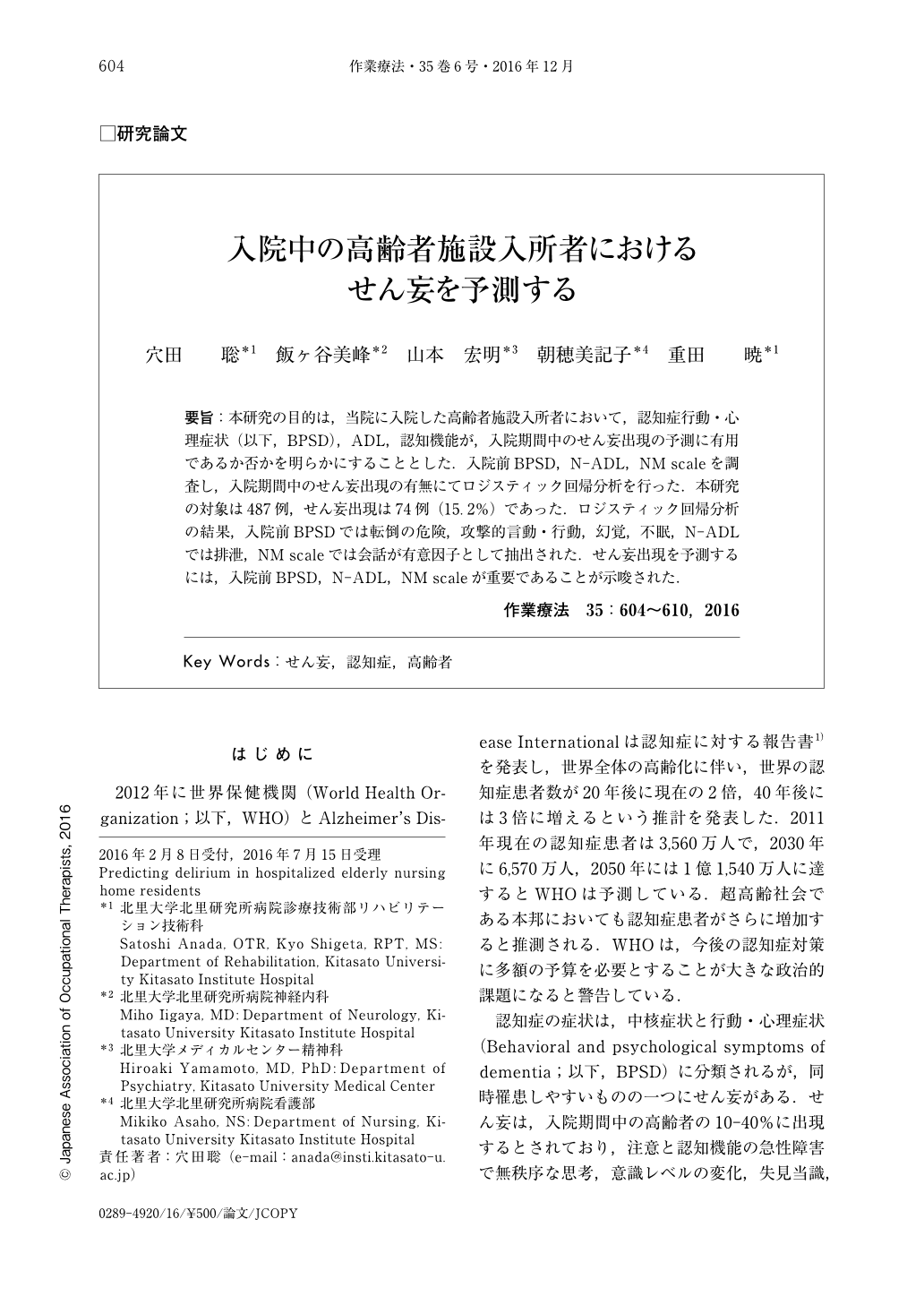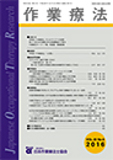Japanese
English
- 販売していません
- Abstract 文献概要
- 1ページ目 Look Inside
- 参考文献 Reference
要旨:本研究の目的は,当院に入院した高齢者施設入所者において,認知症行動・心理症状(以下,BPSD),ADL,認知機能が,入院期間中のせん妄出現の予測に有用であるか否かを明らかにすることとした.入院前BPSD,N-ADL,NM scaleを調査し,入院期間中のせん妄出現の有無にてロジスティック回帰分析を行った.本研究の対象は487例,せん妄出現は74例(15.2%)であった.ロジスティック回帰分析の結果,入院前BPSDでは転倒の危険,攻撃的言動・行動,幻覚,不眠,N-ADLでは排泄,NM scaleでは会話が有意因子として抽出された.せん妄出現を予測するには,入院前BPSD,N-ADL,NM scaleが重要であることが示唆された.
This study aimed to determine whether or not behavioral and psychological symptoms of dementia (BPSD), ADL, and cognitive function are useful for predicting delirium during hospitalization in elderly nursing home residents admitted to our hospital. We assessed pre-hospitalization BPSD, N-ADL, and NM scale parameters, and performed logistic regression analysis based on whether or not delirium was present during hospitalization. Subjects were 487 residents;74 exhibited delirium (15.2%). Logistic regression analysis revealed the following as significant factors associated with delirium:risk of falls, aggressive behavior, hallucinations, and insomnia for pre-hospitalization BPSD;excretion for N-ADL;and conversation for the NM scale. Our findings highlight the importance of pre-hospitalization BPSD, N-ADL, and NM scale parameters in predicting delirium.

Copyright © 2016, Japanese Association of Occupational Therapists. All rights reserved.


